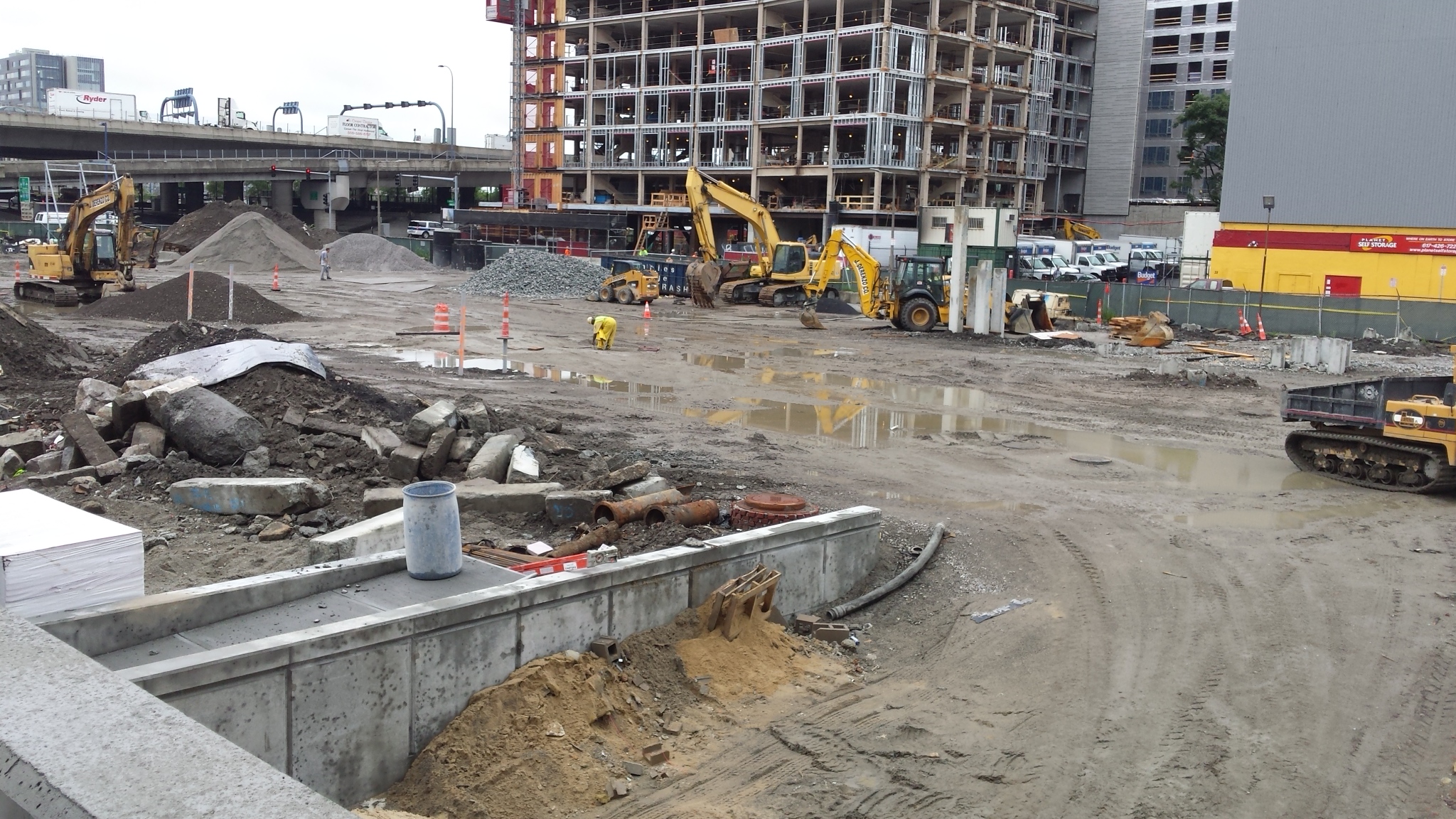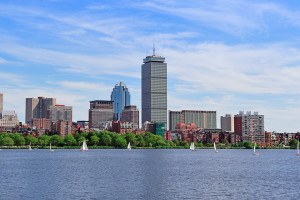A Lost Neighborhood Rises Once Again
The developer of the Sepia condominium building celebrated its groundbreaking earlier today. The Sepia is part of the Ink Block mixed-use project currently under construction between Chinatown and the South End.
The Ink Block project includes condos, apartments, street-level retail and restaurants, and a Whole Foods supermarket. Sepia is an eight-story building with 83 condos on floors 2-8 and 85,000-square feet of retail and restaurant space on the first floor. Completion of construction on the three apartment complexes is scheduled for early next year while Sepia will open in fall 2015. Attending the event were Thomas Alperin, Theodore Tye, and Edward Marsteiner from National Development, the developer, Boston Mayor Martin J. Walsh, Boston City Council President Bill Linehan, and Massachusetts State Representative Aaron Michlewitz.
The area was once known as the New York Streets neighborhood, since the trains to upstate New York once traveled down what is now Albany Street, and the streets they passed were name after rail stops (Oneida, Oswego, Genesee). The entire neighborhood was torn down and dozens of families displaced during Boston’s urban renewal phase in the 1950s, and re-zoned for light industrial. The Boston Herald’s editorial offices and publishing and distribution center were here until 2012. The neighborhood is on the verge of becoming majority-residential during the next several years.
Homeowners in the Sepia will have access to concierge services, personal storage facilities, common area wifi, onsite Zipcar electric car charging station, car detailing service, and dog washing station. They will also share access to the Ink Block’s rooftop pool, fitness center, and club room.
The Ink Block project is currently made up of four buildings-the three apartment mid-rises and Sepia, but the final two buildings will break ground in the near future, according to Tye. Whether they’ll be condos or apartments is unknown at this point, although with 60 percent of the first building pre-sold before any shovels hit the ground, it doesn’t take an accountant to know there’s pent-up demand for condos in the city right now.
In addition to Ink Block, another 1,000 apartments are coming soon to the area, known to city planners as the Harrison-Albany Corridor. Gerding Edlen and Normandy Real Estate Partners are scheduled to top-off their two apartments towers in two weeks, a 378-unit complex they’re calling Troy Boston, while the Nordblom Company is poised to begin construction on its project across the street from Sepia, which will bring 600 units to market. And the Holy Trinity (German) Church has closed and is up for sale, with the expectation that any buyer will want to convert the church and attached rectory into housing.





